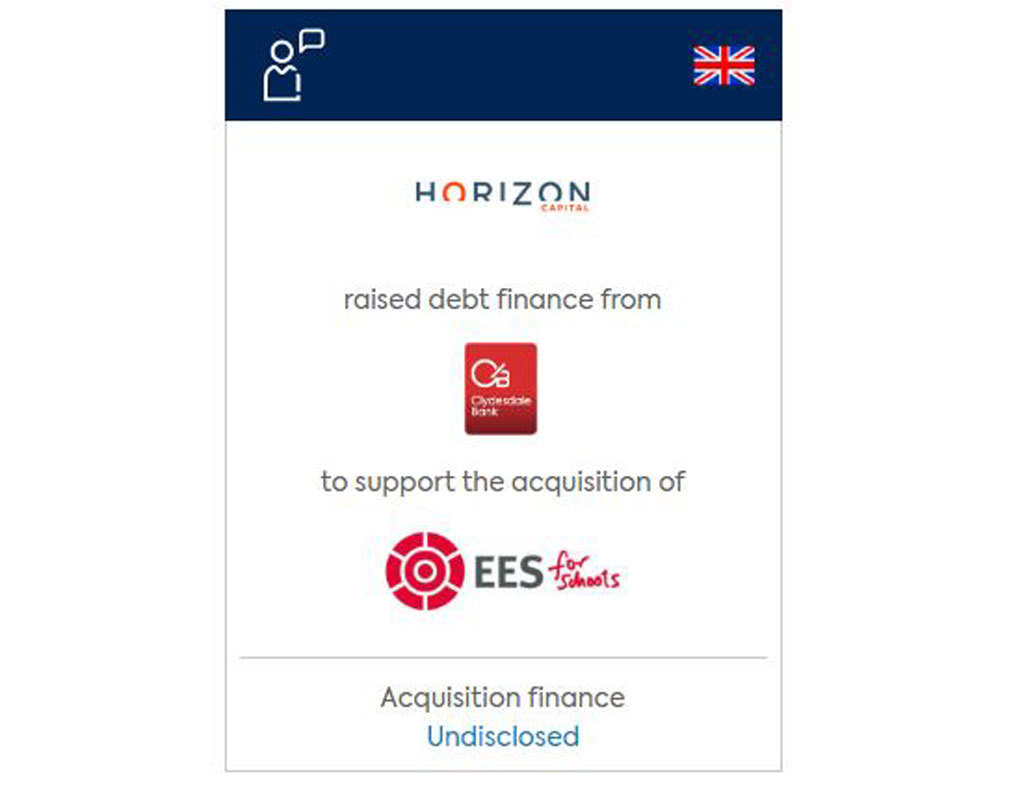EdTech Clearview
Descargar PDF
Market developments
Although the current adoption of technology across the education sector falls far short of its full potential, the rate of growth is accelerating as educational institutions and private providers embrace the benefits that technology can bring, both to the learning environment and to the efficiency of their organisation.
As a consequence, the fragmented EdTech market is growing at pace, with some bullish analysts forecasting global growth to 2022 of over 18% CAGR1. Successful smaller operators within the sector are transitioning from early stage ventures to profitable businesses of scale which, in turn, is attracting interest from private equity who are looking to back teams to deliver the next phase of growth.
Certain mega trends within sub-sectors are inviting technological solutions to structural issues.
Schools
The considerable challenges faced by UK primary and secondary schools in recent years are set to continue for the foreseeable future. Pupil numbers are rising, funding pressures remain, and teacher shortages continue. As it stands today there are currently 7.6 million pupils in state funded schools, a number which is forecast to rise to nearly 8 million in the next five years. Meanwhile school spending per pupil has declined by approximately £500 per pupil since a peak in 2010-11 for both primary and secondary. Compounding this is that teacher numbers are currently at their lowest level since 2013.
Therefore, technologies that enable teachers and schools to operate more efficiently are particularly well positioned. However, the perennial challenge with the market is often long sales lead times within the schools themselves, meaning the rate of change is slow.
One company managing to scale at an impressive rate is Twinkl, the educational resources business boasting more than half a million pieces of content for primary and secondary school teachers and other learning professionals.
Its subscription based service for either individuals or schools is now supporting more than 4 million educators around the globe. Twinkl’s resources improve teacher efficiency and ensure high quality learning, providing an effective solution to challenges faced by the sector.

Corporate training
Demand for e-learning within the workplace is being driven by a fundamental shift in attitudes to continued education from employees, and a recognition by employers that there are more effective learning routes than the out-of-date classroom-based approach.
Innovative technologies, the increased take-up of bring your own devices (BYOD), alongside the more flexible nature of employment, drives demand for a more effective way of continued learning.
While traditional classroom-based learning methods will always have a place in the world of employment, these are often not flexible enough to meet the needs of busy professionals. Often led by the ever-increasing number of millennials in the workplace, employees are now demanding learning ‘on the go’ to be consumed as, and when, they want across a full range of media, and on a device to suit. As such, there is a continuing shift to a blended approach, combining e-learning and classroom teaching, where employees are taking ownership of their personal and professional development.
It has been demonstrated in recent surveys that investment in technologies that support learning within the workplace has a positive impact on talent acquisition and retention. In today’s tight labour market, with employees taking ownership of career development, businesses are increasingly seeing a technology enabled learning environment delivering technical and soft skills as an essential offering.
Generally speaking, a holistic e-learning system can be significantly more cost effective compared to traditional methods too. Therefore, given these compelling drivers more and more companies are deploying technology as part of their human capital and learning & development strategy.
Given these positive drivers, private equity and strategic buyers have shown strong interest in the sector. A recent example of such interest is Mindtools, the provider of online content for leadership and personal effectiveness to both B2C and B2B customers, that was acquired by Emerald Publishing in April 2019. This transaction is also an interesting example of publishers looking to gain a technology platform to deliver content through an online subscription model.
Higher education
Increasing tuition fees in 2012 to £9,000 had a short term impact on undergraduate applications for universities, however the decline proved a temporary bump in the road and overall first time undergraduate degree student numbers have remained buoyant since that time. In 2017/18 there were 1.62 million undergraduates undertaking their first degree in the UK.
Unsurprisingly however, this has led to an increase in expectations from students in terms of the quality of the education they receive, the skills developed, and the way in which they are taught.
These Generation Z learners are very demanding in terms of a technology supported approach to education and acquiring the skills needed for a successful career.
A recent survey showed while over 81% of university students felt digital skills will be important for their future roles, only half believe that their courses adequately prepare them2.
Institutions are responding through increased investment in the infrastructure and systems to deliver an active learning environment to attract students to their universities, as well as investment in distance learning capabilities and full online provision.
FutureLearn, the digital learning and online degree platform established by The Open University, successfully raised £50m in April 2019 from Australia based SEEK group in the latest transaction in the sector.
Sector outlook
There are a plethora of growing businesses with exciting technology that are capitalising on the market opportunity with Virtual Reality, Augmented Reality, adaptive learning and Artificial Intelligence likely to play an ever more important role in the coming decade.
In addition to the sectors above, there are many more segments of the education market where technology will have a seismic impact such as tutoring, language tuition and within vocational delivery. The direction of travel is one way, and as such we expect M&A activity in the EdTech market to remain strong for the foreseeable future with interest coming from both private equity and strategic trade.
1: Research and Markets: Growth Opportunities in the Education Technology Market - Forecast to 2022
2: Jisc - Student digital experience tracker 2017: the voice of 22,000 UK learners



